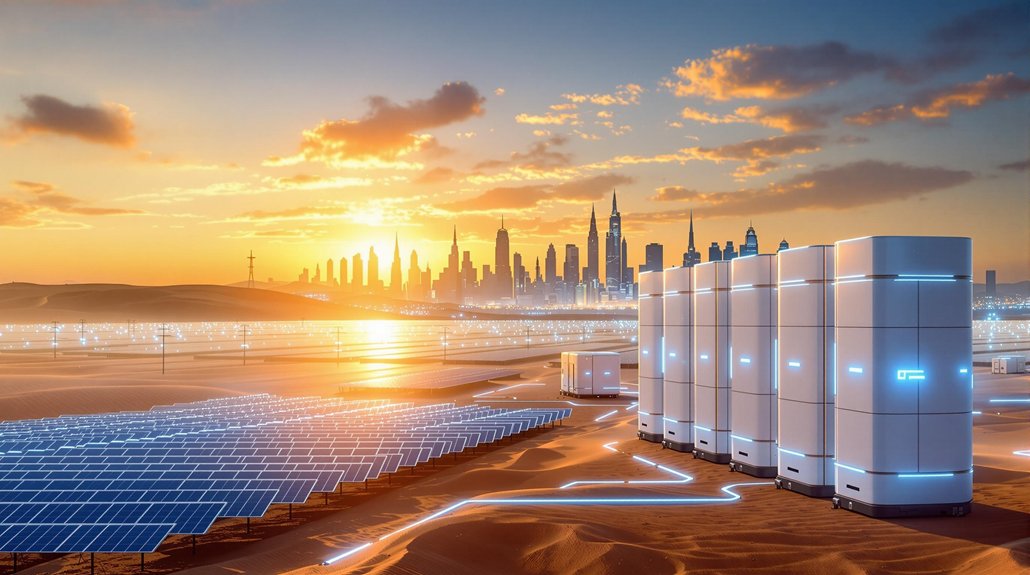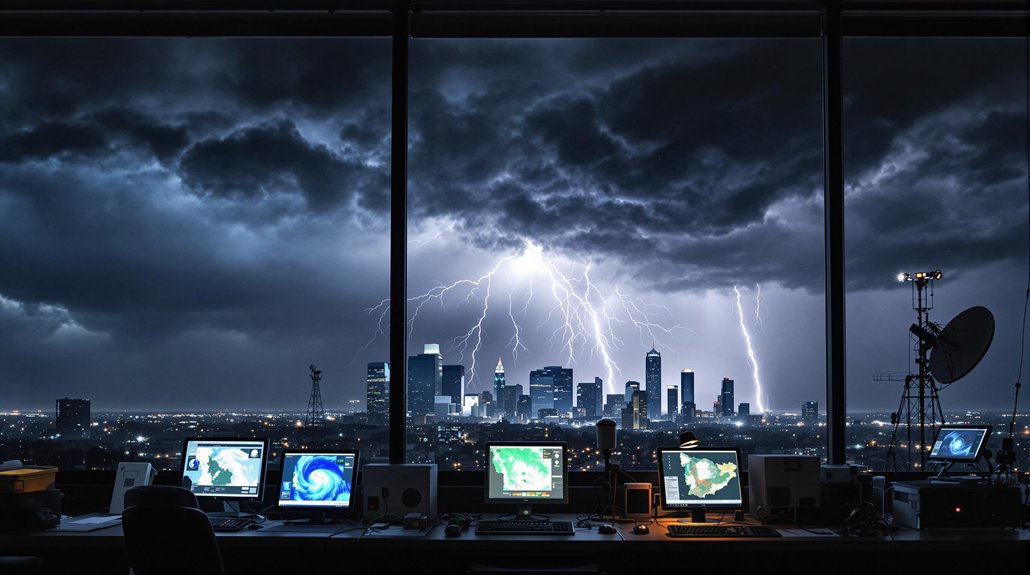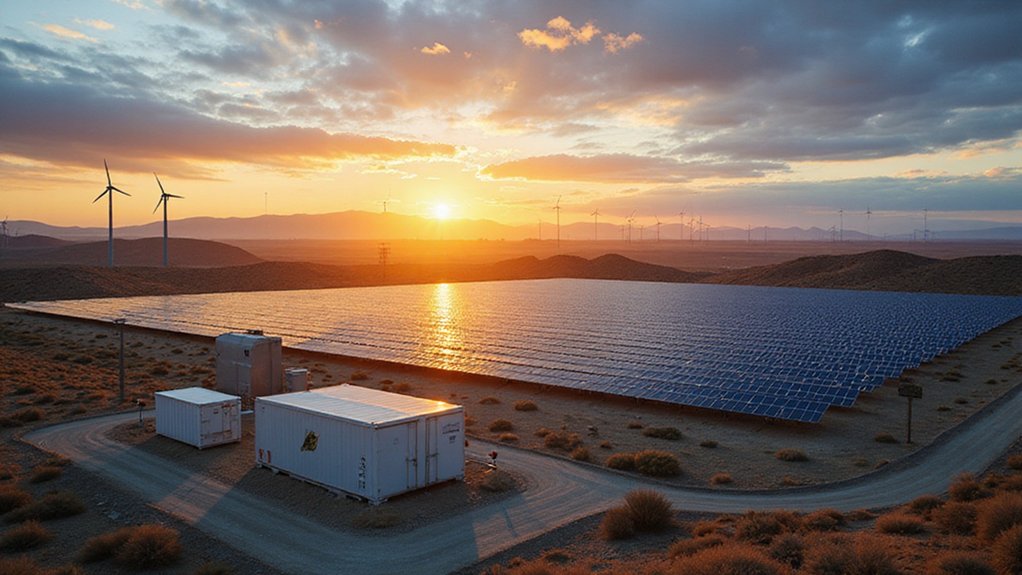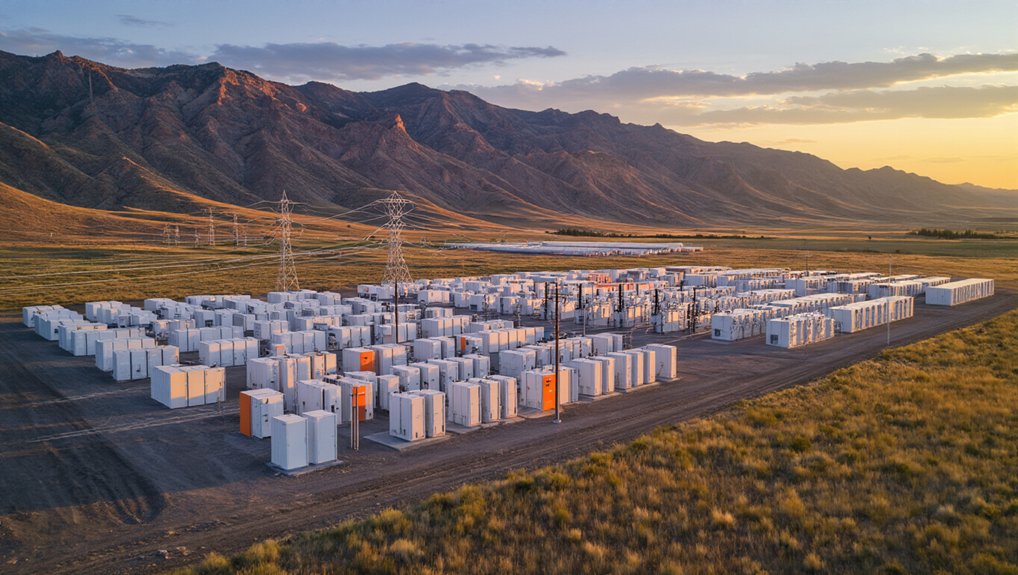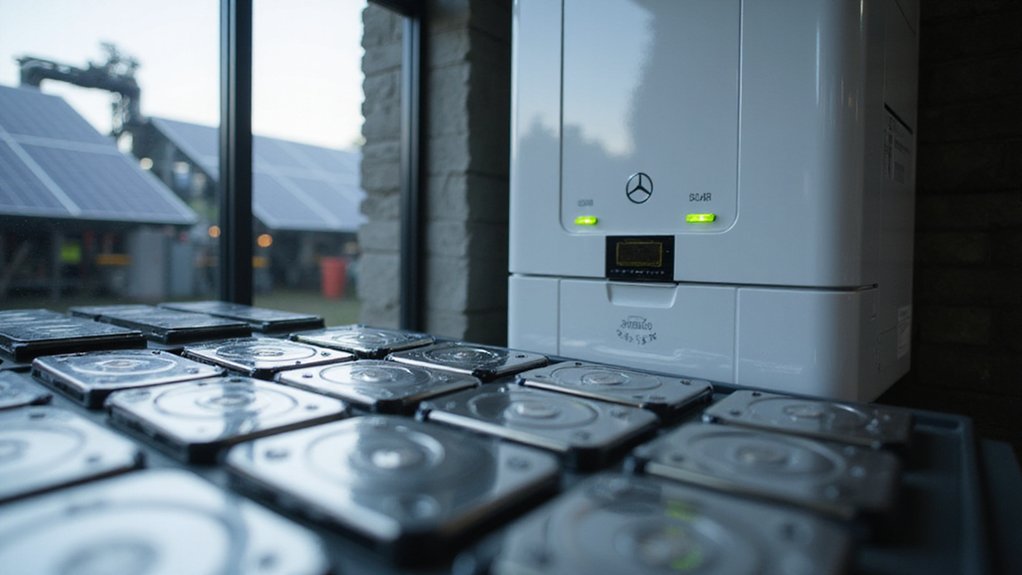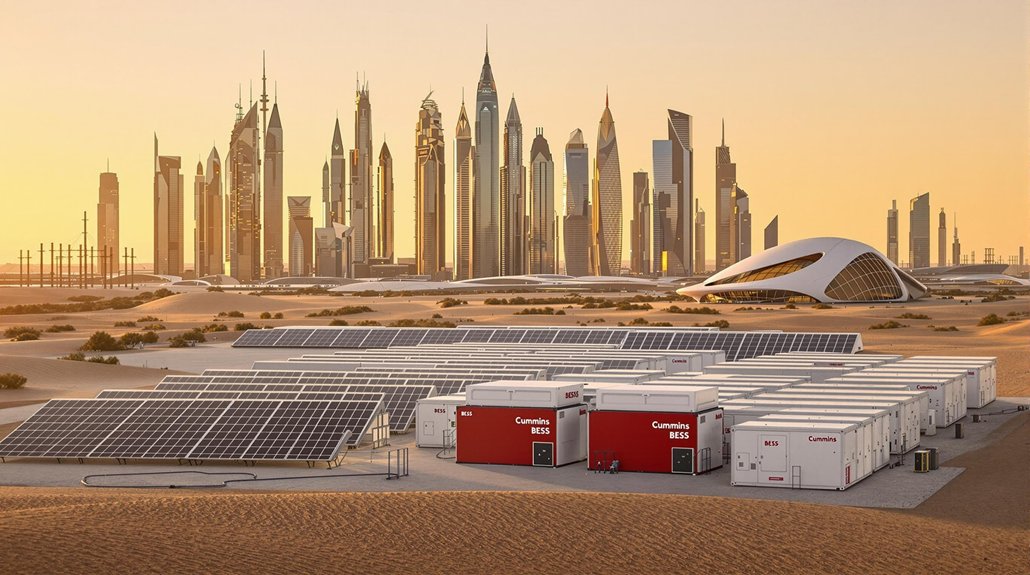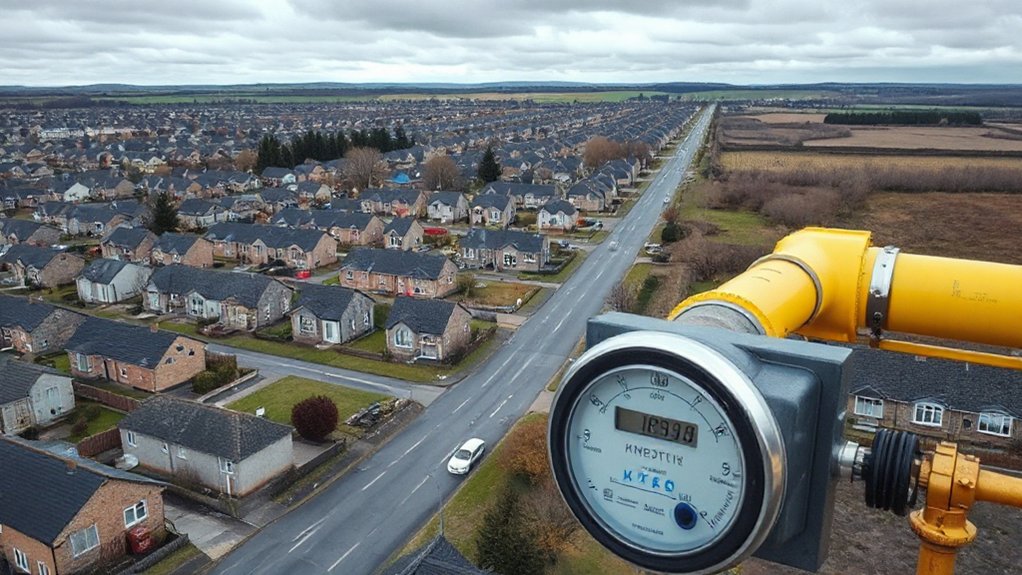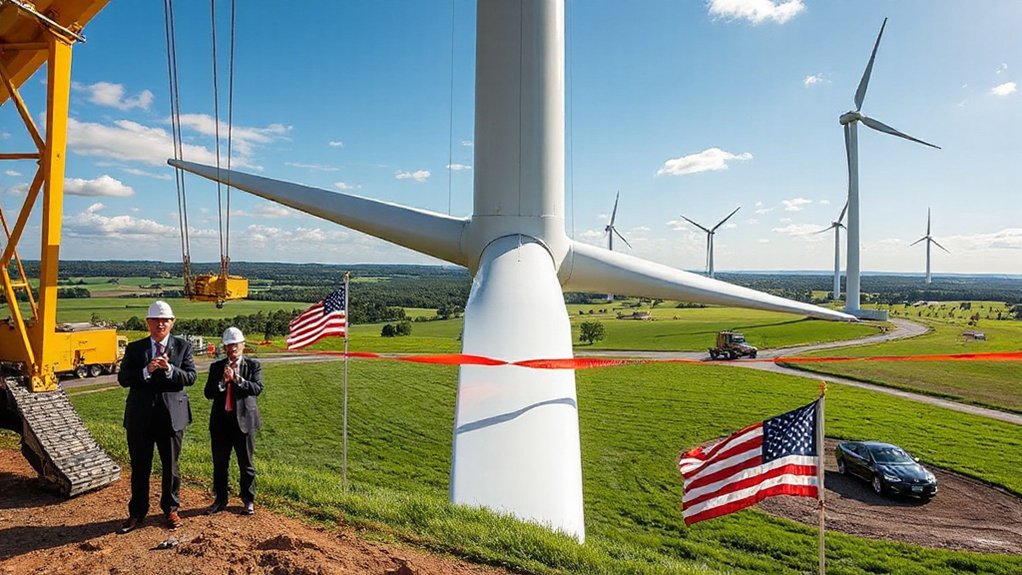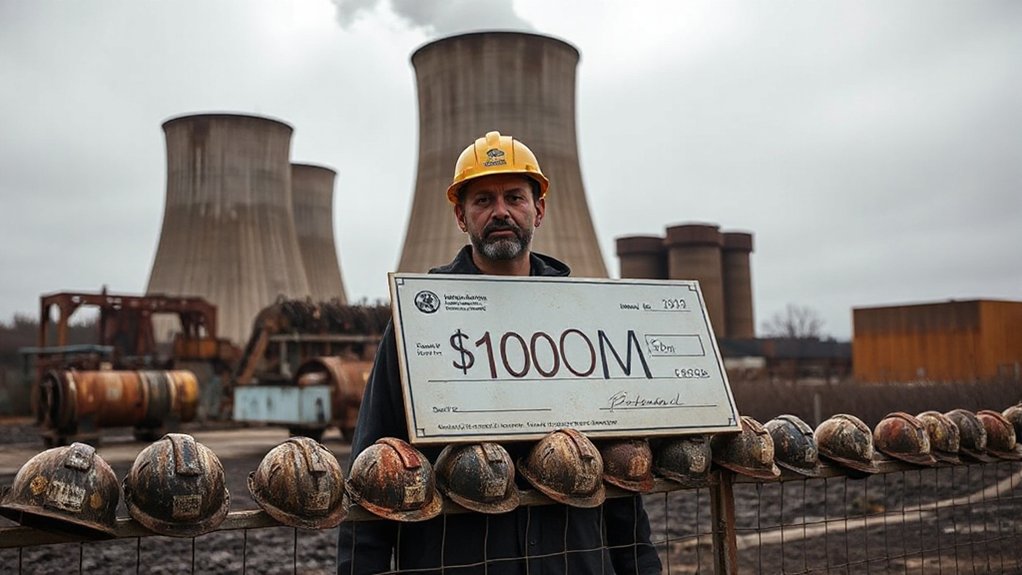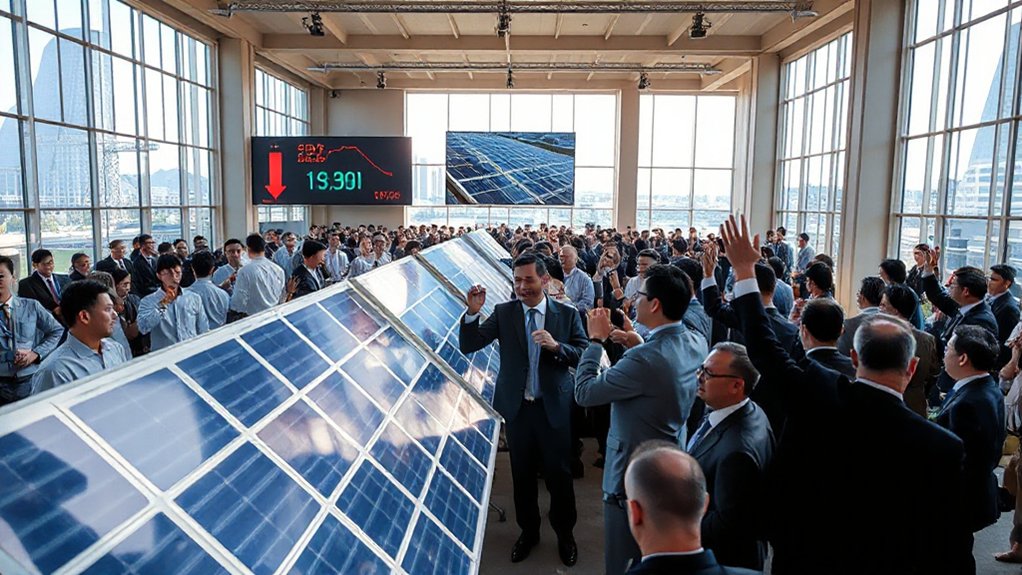Dubai’s battery transformation is taking center stage with the world’s first 24/7 solar battery storage project at gigascale. The system combines 5.2GW of solar power with 19GWh of battery storage, providing continuous renewable energy. Local innovations include energy-storing ceramics from industrial waste and portable off-grid systems. The upcoming Middle East Energy Dubai 2025 exhibition will showcase these advancements alongside smart grid initiatives. This transformation offers both economic benefits and a blueprint for global implementation.
As the global race for renewable energy solutions intensifies, Dubai has emerged as a pioneering force in battery storage technology. The UAE recently launched the world’s first 24/7 solar photovoltaic battery storage project at gigascale. This groundbreaking initiative combines a massive 5.2GW solar PV plant with a 19GWh Battery Energy Storage System, providing 1GW of continuous baseload power from renewable sources.
This project directly addresses one of renewable energy’s biggest challenges: intermittency. By storing excess solar energy during peak production times, Dubai can now deliver clean power around the clock. It’s a significant step toward the emirate’s ambitious goals for energy transformation and sustainability.
Local innovation is flourishing alongside these large-scale projects. Engineers at Khalifa University are developing energy-storing ceramics made entirely from upcycled industrial waste. These materials have a 20% lower carbon footprint compared to traditional options.
Meanwhile, companies like Solaris Solutions are creating portable, off-grid systems that generate electricity in remote areas. These systems leverage lithium-ion technology which has seen an 87% price drop since 2010, making renewable storage increasingly affordable.
The upcoming Middle East Energy Dubai 2025 exhibition will spotlight these advancements in battery technology and energy storage. The event brings together industry professionals, policymakers, and innovators to showcase high-power charging solutions and collaborate on the future of energy markets. The exhibition will feature extensive demonstrations of solid-state battery technologies that promise higher energy density and improved safety over conventional lithium-ion batteries.
Dubai’s smart grid initiatives, led by DEWA, are already transforming the city’s energy landscape. The Green Charger program has installed over 700 electric vehicle charging stations across the emirate, supporting both renewable energy integration and clean transportation. This remarkable project was described as a moonshot challenge of our time by Sultan Al Jaber, highlighting its innovative significance.
These developments bring substantial economic and environmental benefits. Large-scale storage projects reduce fossil fuel dependency while stabilizing electricity costs. They also create opportunities for commercializing sustainable innovations and building regional energy resilience.
Though scaling up battery storage requires significant investment, Dubai’s leadership provides a model for global implementation. Through collaboration between government, academia, and the private sector, the UAE is overcoming previous challenges of renewable energy integration and establishing itself as a world leader in battery storage technology.
